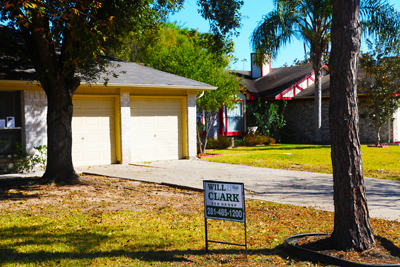Can You Get a Better Home Price with Environmentally Friendly Financing?
The FHA, Bank of America, and Bluegreen Financial
© 2013 Carly Fierro; all rights reserved; content may not be copied, rewritten, or republished without author’s written permission. Posted March 26, 2013


We all know how expensive purchasing a home can be. What if there was a way to save money by spending less on energy and getting a discount on your mortgage? The way exists, and it is known as environmentally or eco-friendly financing.
History of the Energy Efficient Mortgage
This instrument was the brainchild of President Jimmy Carter. In 1979, he signed an executive order directing secondary mortgage companies like Fannie Mae and Freddie Mac to offer incentives to buyers who used energy-efficient technology in their new homes.
Since few buyers took advantage of the program at the time, the order was soon forgotten. It has been resurrected in recent years as more people have become dedicated to “going green.”
The FHA Energy Efficient Mortgage Program
To qualify for Energy Efficient Mortgage program (EEM) through the FHA, a buyer must be able to put down three percent of the cost of the house. He or she must then spend at least five percent of the property’s purchase price on energy improvements that are cost-effective (e.g., that will lower the house’s energy bill).
The basic concept is to encourage a trade-off between lower energy costs and higher mortgage payments. The FHA puts it this way, “EEMs recognize that reduced utility expenses can permit a homeowner to pay a higher mortgage to cover the cost of the energy improvements on top of the approved mortgage”.
Efficiency Scoring with the Home Energy Rating System
The Home Energy Rating System, or HERS, report measures a home’s energy efficiency. Scores can range from 0 (worst) to 100 (best). Most houses score an average of 80.
The FHA uses this system to make eligibility requirement decisions. They say “The cost of the energy improvements and estimate of the energy savings must be determined by a home energy rating system (HERS) or an energy consultant”.
After a HERS inspector rates your home, he or she can give you a list of updates to consider that will help you meet federal guidelines. He or she can also tell you how planned changes will affect your HERS score.
For instance, if you’re considering installing Renewal by Andersen windows, the inspector can give you an idea of how much your HERS score will increase.
Bank of America Financing
The federal government isn’t the only agency to offer environmentally friendly financing. Private companies also make these offers. Bank of America, for instance, calls their program their Green Mortgage Program.
Buyers whose homes meet Energy Star requirements can receive a credit of up to $1000 on their purchase or a lower interest rate.
Bluegreen Financial
Another private company to offer green-friendly incentives is Bluegreen Financial, which operates out of Florida. Buyers who purchase Energy Star homes or appliances can receive discounts on broker’s fees.
This company also goes a step further by rewarding buyers who work for a company with a “green” rating or who drive fuel-saving cars such as hybrids. Bluegreen Financial also donates five percent of its profits to the environmental charity of the buyer’s choice.
Check into State Programs
In additional to federal and private programs, many states have programs that reward green home buyers and home owners. You might want to research your local options before buying a home, especially if you’re committed to green living.
About the Author:
Carly is a freelance writer who loves animals, spending time outdoors, and traveling. She loves how blogging allows her to share her writing with a large audience on the internet.
References:
Further Reading:
- How Bad Credit Can Stop You from Buying Your Dream Home
- Buying a House? A Building and Pest Inspection can Save You Money
- A Certified Home Inspector can Improve Energy Efficiency
- Commonly Overlooked Issues During a Home Inspection
Add a Comment:
Website © 2013 KSmith Media, LLC; all rights reserved; content may not be copied, rewritten, or republished without written permission.
